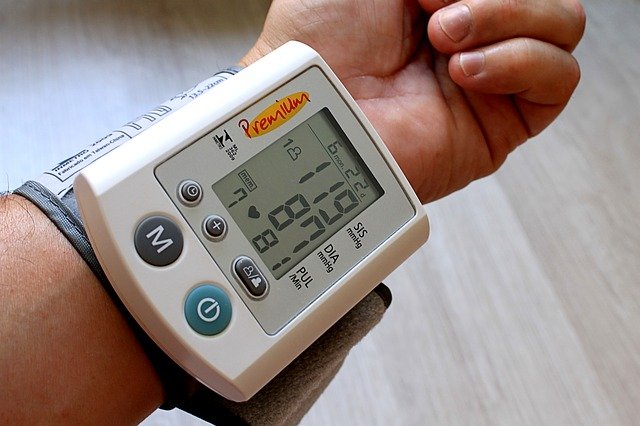
In a new study, researchers found controlling high blood pressure could help reduce dementia risk in mid-life patients with atrial fibrillation (AF), a common heart rhythm problem.
The research was conducted by a group of Korean researchers.
AF is the most common heart rhythm disorder in older people. It can increase stroke risk by four to five times in patients.
The condition has also been linked to cognitive impairment and dementia and even in people without a prior diagnosed stroke.
Previous studies have suggested that high blood pressure in mid-life increases the risk of dementia in later life, but more evidence is needed.
In the study, the team examined the Korean national health insurance service database to measure blood pressure in 196,388 AF patients over 50 years.
All of the patients took at least one blood pressure drug at the time of AF diagnosis. The patients were followed about 5 years.
The team compared dementia risks in the time when his blood pressure was not controlled (over 140mmHg) and in the time when their blood pressure was in control status (<120mmHg/120~129mmHg/130~139mmHg/140mmHg).
They found that AF patients in their 50s and 60s can benefit from lowering their blood pressure to 120-129 mmHg compared with high blood pressure over 140mmHg.
In addition, lowering blood pressure in patients over 70 years old may not have a strong impact on dementia risk.
The study finding suggests that blood pressure control <130mmHG could help lower the dementia risk with similar benefits for patients aged 50-59 and 60-69.
It confirms that midlife high blood pressure is a big risk factor for late-life cognitive impairment and dementia.
It also shows that health blood pressure in mid-life is important for brain health in later adulthood.
The researchers suggest that one potential way to help mid-life AF patients minimize their risk of dementia is to protect their blood pressure.
But for those who have entered into later life (over 70 years old), blood pressure control might be of little help.
These people need to do more things, such as eating a healthy diet, take regular exercise, use their brain, and sleep well.
The lead author of the study is Dr. Daehoon Kim, a cardiologist at Yonsei University College of Medicine in Seoul, Republic of Korea.
The study was presented today at EHRA 2019, a congress of the European Society of Cardiology (ESC).
Copyright © 2019 Knowridge Science Report. All rights reserved.



